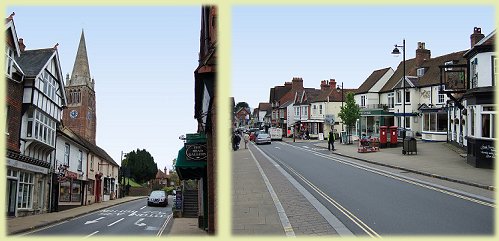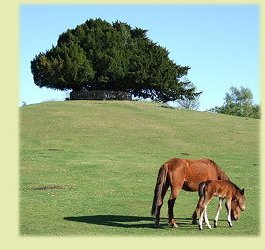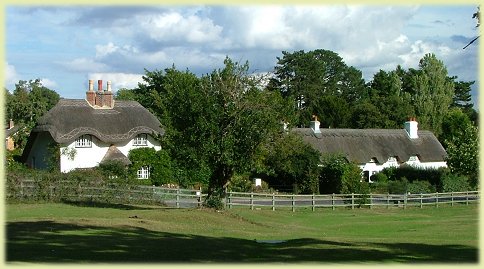Lyndhurst
New Forest
Lyndhurst
Overview
Lyndhurst has long been recognised as the ‘unofficial capital’ of the New Forest and lies close to the geographical centre of the National Park area.
It’s long been the centre of administration for the Forest and Queen’s House, at the top of Lyndhurst High Street, is home to both the Forestry Commission headquarters and the court of the New Forest Verderers.
For first-time visitors, Lyndhurst is the place to head for. In the main car park, just off the High Street, is the New Forest Museum – an excellent place to spend an hour or so and learn a bit about life in the Forest, past and present.
The narrow High Street has a wide variety of businesses; souvenier shops, boutiques, estate agents, a couple of pubs, a supermarket, a petrol station and a Maserati/Ferrari dealership can all be found in the space of a few hundred metres!
At the top end of the High Street the spire of Lyndhurst’s St. Michael’s & All Angels church is clearly visible, the church sits opposite the Tudor-beamed Crown Hotel, another famous Lyndhurst landmark.
Within the grounds of the church is the grave of Alice Liddell, the girl who inspired Lewis Carroll’s classic book Alice’s Adventures in Wonderland.
Bolton's Bench
At the opposite end of the town is Bolton’s Bench, a hugely popular spot for visitors – and locals – to come and relax under the large yew tree, or take a stroll around the grassy lawns. The yew tree sits atop a small hill and is one of the New Forest’s most famous ‘picture postcard’ landmarks.
The large areas of grass on and around the Bench attract many New Forest ponies and donkeys, and in the summer months cricket is played immediately behind the hill.
Swan Green
Swan Green, on the very western edge of Lyndhurst, is a picturesque village green backed by the tall oak and beech trees of the Ancient and Ornamental Woodlands. The local cricket club ground is also to be found here, and a row of small, thatched forester cottages facing the green have to be amongst the most photographed cottages in the country!
Getting to Lyndhurst
Lyndhurst is a hub for two of the major roads that provide easy access to and from different parts of the New Forest.
The A337 runs north-south linking Cadnam (and the M27 motorway) to Lyndhurst, Brockenhurst and Lymington while the A35 runs northeast-southwest connecting Southampton, Ashurst, Lyndhurst and Christchurch.
The B3056 heads out to Beaulieu from the bottom end of the High Street, and goes through some of the nicest New Forest scenery with great views over large expanses of heathland.
Explore Lyndhurst and surrounding area using satellite imagery.
Related Pages:
- Bolton’s Bench.
- New Forest Museum.
- Lyndhurst satellite view.
- Lyndhurst Parish Council website.

A Guide to Trails and Park Terrain
There is a specific smell that hits you the moment you step out of the car in the New Forest. It is a mix of damp oak leaves, ancient soil, and honestly, a little bit

New Forest Activities for Single-Parent Families
The New Forest offers a wealth of year-round experiences perfect for single-parent families looking to create lasting memories. From spring woodland walks surrounded by bluebells to summer picnics by gentle streams, the national park provides

Practical Equipment for Life on the Road
More people choose mobile living every year, from weekend caravanners to full-time digital nomads. Homes on wheels promise freedom, changing scenery, and a lifestyle that breaks away from traditional routines. That lifestyle only feels comfortable

How to Enjoy the New Forest’s Nature and Wildlife Without Breaking the Bank
The New Forest is one of the UK’s most cherished landscapes, a place where ancient woodlands, open heathlands, free-roaming ponies, and peaceful villages come together to create an unforgettable outdoor escape. And while many people
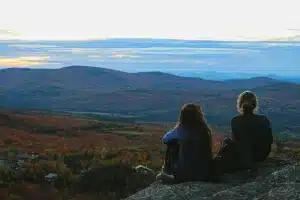
Why Time in Nature Complements Daily Astrological Guidance
Many of us start the morning with a quick look at our horoscope. A few lines can help name our mood, highlight a tension, or point out an opening in the day. What often gets
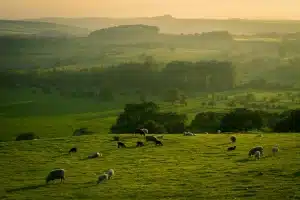
UK’s best natural spots
Wilderness escapes are not for everyone, that’s for sure. Some people simply prefer holidays where they can lounge all day and take it easy instead of being active, going hiking, swimming, or cycling. But there

